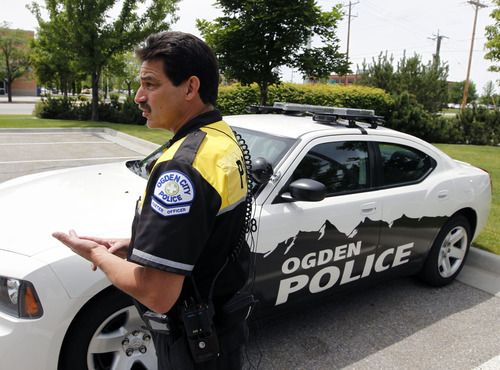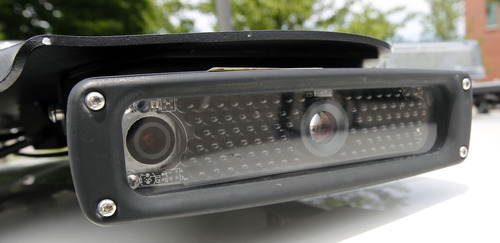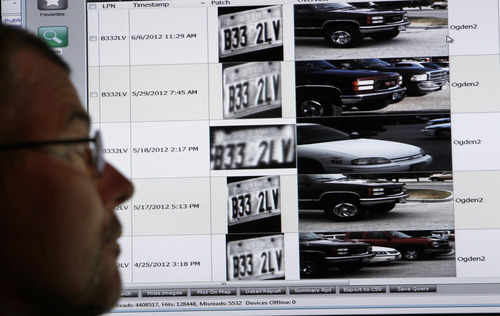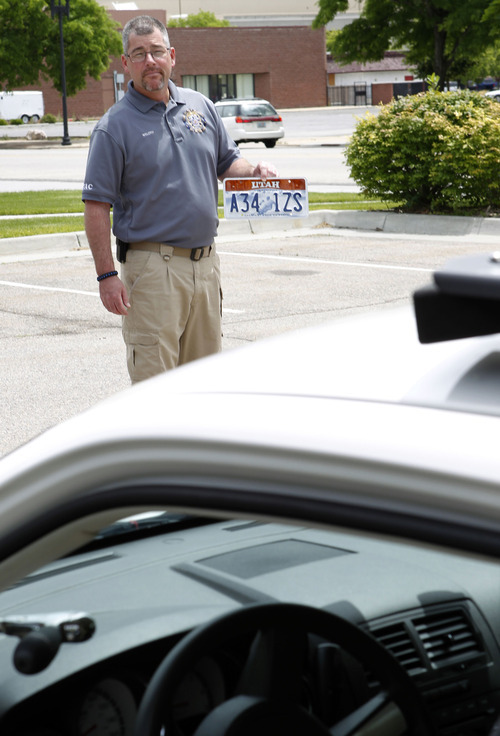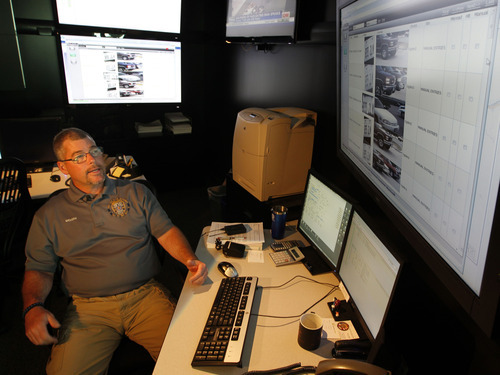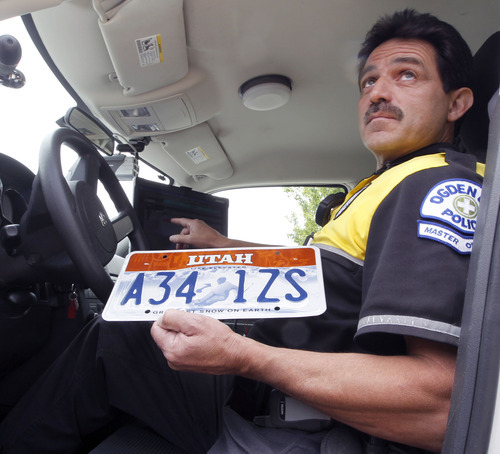This is an archived article that was published on sltrib.com in 2012, and information in the article may be outdated. It is provided only for personal research purposes and may not be reprinted.
Ogden • Police officer Tim Shelstead compares his patrol to a real-life version of "Knight Rider," the 1980s television series that paired David Hasselhoff with a technologically advanced car as a crime fighting duo.
While "Knight Rider" was fictitious, Shelstead is using his department's license plate reader car to fight real crime.
Ogden police on Wednesday showcased the vehicle, used to recover stolen cars and pinpoint drivers with no insurance and expired registrations. Police Chief Mike Ashment said the car's technology provides "another tool in the toolbox" to aid officers around the city.
"This fits in with our overall approach and philosophy in the department to use the technology that's available to us to be more effective and more efficient at solving crime," Ashment said.
The $50,000 car has been in use for around a year and can read license plates from the front, back and side on cars that are parked or in motion. Shelstead said the car had scanned nearly 2,000 plates in four hours during his Wednesday morning patrol.
After the plates are scanned, the data is stored on a state-wide database that is used by all of the agencies in Utah that have license plate scanners, Ogden Police Crime Analyst David Weloth said.
"I can pull up a read that was made in West Valley, Vernal or any of the other agencies that use the system," Weloth said.
Weloth said the database keeps track of when, where and how many times a plate has been read for an indefinite amount of time. The scanner also takes a picture of the car and license plates for officers to cross-reference at a later date.
"Instead of saying, 'maybe that's the truck or maybe not,' we have actual pictures to associate (it) with," Weloth said.
Marina Lowe, legislative and policy counsel for the American Civil Liberties Union of Utah, said her organization has asked several law enforcement agencies around the state about the usage of the license plate scanners over invasion of privacy concerns.
Lowe said the data could be used in a way that violates a person's constitutional rights if, for example, license plate information is used to target drivers who frequent liquor stores as potential DUI offenders.
"It sort of brings into question whether people will be chilled in their ability to participate in certain activities," Lowe said.
Ashment dismissed privacy concerns.
"I think we have that covered because we follow the same procedures and policies for using any of the other information we get from the state's criminal database," he said.
Shelstead said the car's impact has been immeasurable, helping him recover three stolen cars in the last year that would have gone unnoticed without the scanner technology.
If he had his way, the department would buy a few more cars just like his.
"It would make my job a lot easier," Shelstead said.


